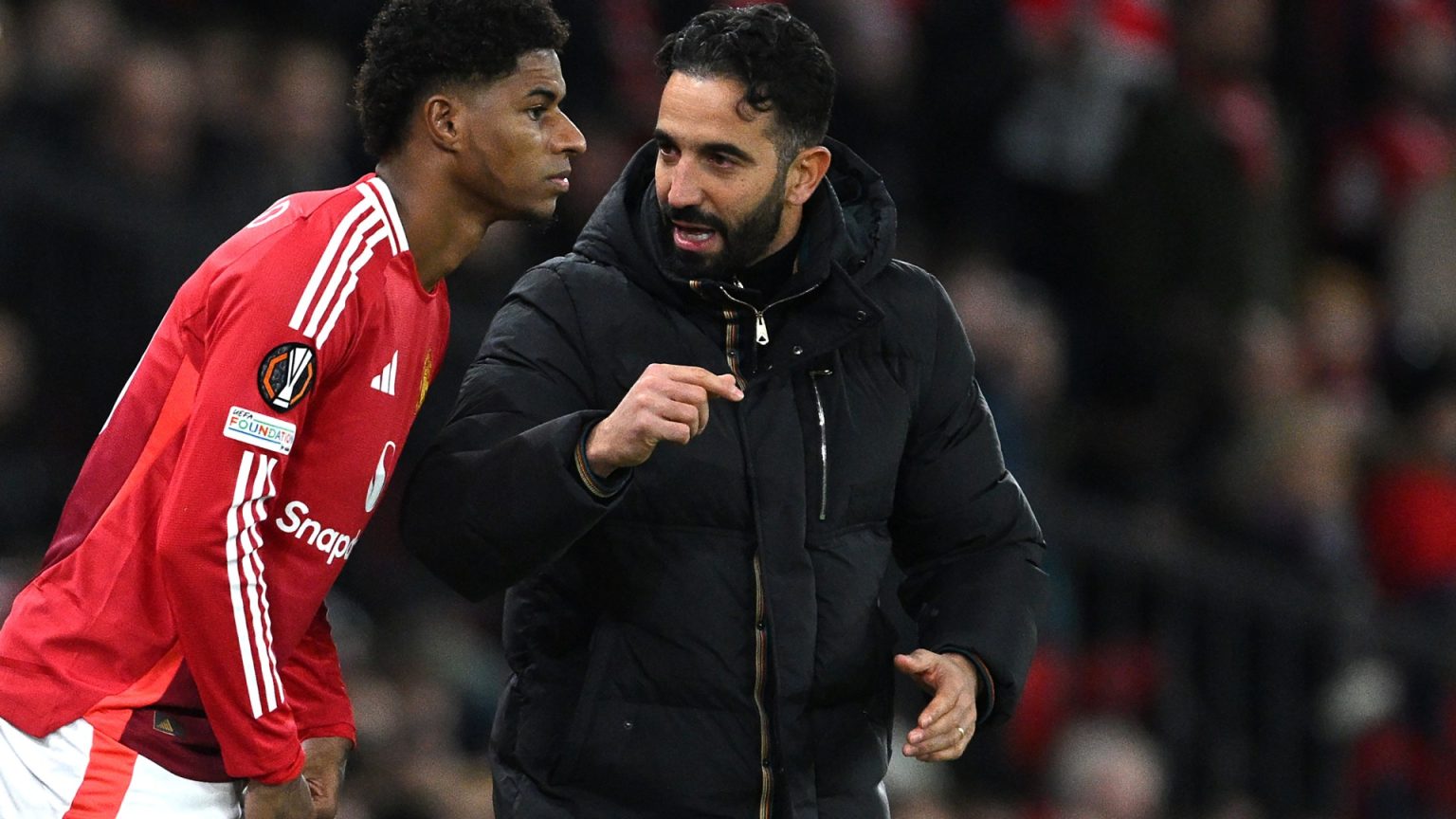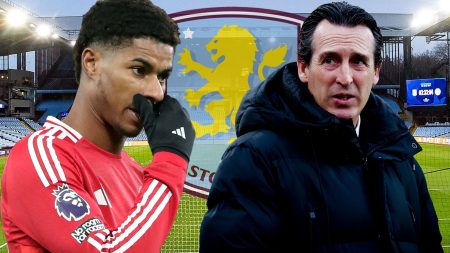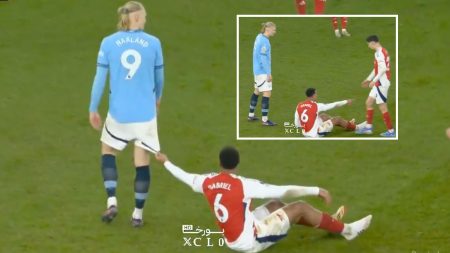Marcus Rashford’s tenure at Manchester United has reached a bitter end, culminating in a loan move to Aston Villa. The 27-year-old forward, once a promising star nurtured at Old Trafford, has found himself frozen out of the squad under the management of Ruben Amorim. Rashford’s last appearance for United came on December 12th, and since then, he has been relegated to the sidelines, featuring only once as an unused substitute. Amorim’s discontent with Rashford’s training regime reportedly reached such a level that he publicly declared a preference for fielding the 63-year-old goalkeeping coach, Jorge Vital, over the England international. This stark declaration signaled the definitive end of Rashford’s prospects at United under the current management.
The loan deal with Aston Villa offers Rashford a lifeline, allowing him to continue playing at the highest level of English football and compete in the prestigious Champions League. Villa have agreed to cover a significant portion of Rashford’s hefty £325,000-a-week salary, approximately 75%, ensuring that the forward does not have to sacrifice his financial standing. Furthermore, the deal includes an option for Villa to purchase Rashford outright for £40 million at the end of the loan spell, suggesting a potential permanent move for the player. This arrangement presents a win-win scenario for both parties involved – Rashford gets a fresh start and valuable playing time, while Villa gains a proven Premier League talent with Champions League experience.
Rashford’s departure from Old Trafford marks a significant shift in his career trajectory. He had previously expressed unwavering loyalty to Manchester United, stating his intention to never play for another English club. However, the strained relationship with Amorim and the lack of playing time forced him to reconsider his options. While Rashford reportedly harbored ambitions of joining a major European club, the anticipated interest from these clubs failed to materialize, leaving Aston Villa as a viable and attractive alternative. The prospect of Champions League football and the preservation of his current wage structure ultimately swayed Rashford towards accepting the loan move.
The inside story of Rashford’s exit reveals the extent of the breakdown between the player and the manager. Sources within Manchester United have confirmed that Amorim made it unequivocally clear to Rashford that he had no future at the club under his leadership. This blunt assessment left Rashford with little choice but to seek opportunities elsewhere. Despite his strong emotional ties to Manchester United, the reality of his situation dictated a change of scenery. The loan move to Aston Villa, albeit within the Premier League, offers Rashford a chance to rebuild his career and prove his worth on the pitch.
Wayne Rooney, a former Manchester United teammate, expressed his dismay at the situation, emphasizing the awkwardness of encountering Rashford during a visit to Carrington, the club’s training ground. This sentiment underscores the unexpected and unfortunate turn of events for a player who once held such promise at United. The transfer saga underlines the sometimes-brutal nature of professional football, where even homegrown talent can fall out of favor under a new managerial regime. Rashford’s journey now takes him to Villa Park, where he hopes to rediscover his form and make a significant impact for his new club.
The contrast between Rashford’s aspirations and the reality of his situation is striking. He had envisioned a move to a top European club, a step up in his career trajectory. However, the lack of concrete offers from such clubs forced him to reassess and consider alternative options. Aston Villa’s interest, initially tentative in November, developed into a concrete offer that provided Rashford with a realistic pathway to continue playing at a high level. The opportunity to maintain his salary and participate in the Champions League proved decisive factors in his decision to join Villa on loan. This move represents a significant chapter in Rashford’s career, a period of transition and adaptation as he navigates a new environment and aims to revive his footballing fortunes.











